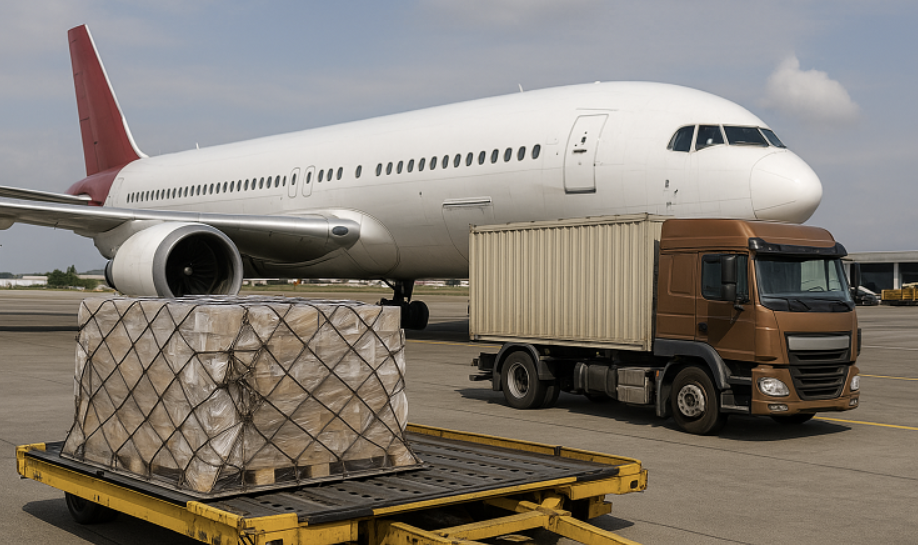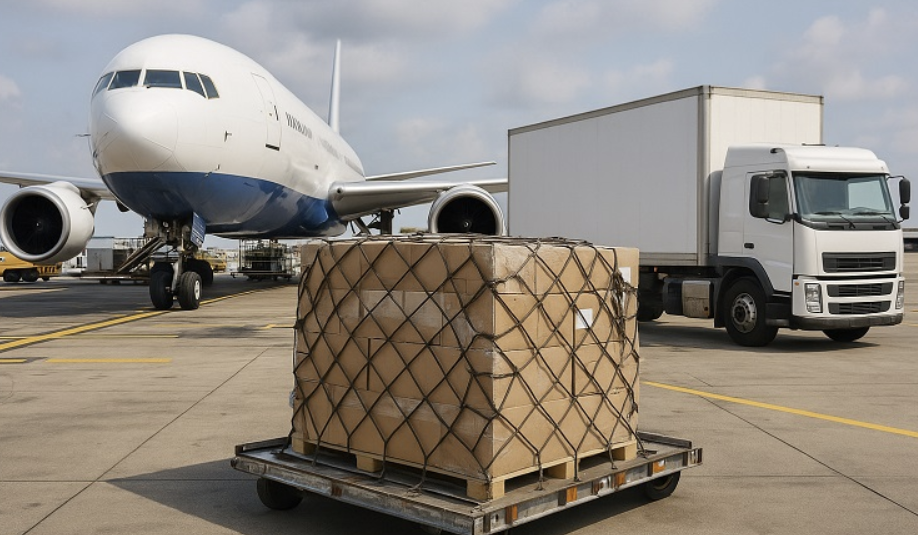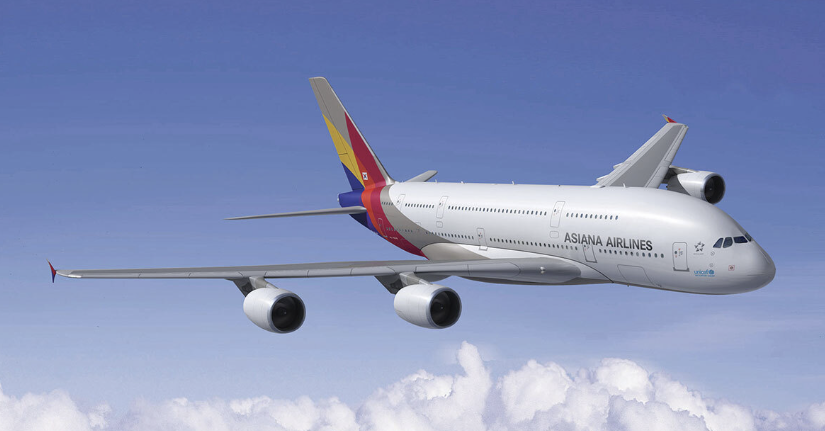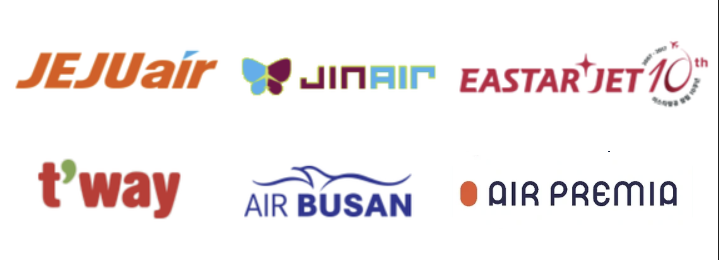EXTRANS GLOBAL - Air Freight News - Week 33 2025
1. Air Cargo General
1) Q3 Air Cargo Market Expected to See “Early Surge Followed by a Lull”

The global air cargo market in July showed a slight recovery from June’s stagnation, but volatility remains a concern due to impending tariffs and the abolition of the de minimis regime. Recent analysis by TAC Data highlights the key factors influencing the July market and offers projections for Q3.
Four Major Factors Driving Market Volatility
- “Rush and Hesitation” Driven by Tariff Deadlines
In July, exporters rushed to ship goods ahead of the August 1 U.S. tariff imposition deadline, while facing demands to adapt to an uncertain policy environment. Exports from Vietnam, Thailand, and Malaysia faced new tariffs ranging from 19–36%, leading to a surge in cargo volumes. The impending abolition of de minimis on August 29 has intensified pressure on e-commerce cargo from China. Spot rates on Asia–U.S. routes remained around $5/kg, but with many shippers already having pre-shipped, peak season demand growth is expected to be limited. - Accelerated Reallocation of Freighter Operations
Freighter operators are shifting capacity from Trans-Pacific routes to Southeast Asia, Europe, and Latin America. In July, large and medium widebody supply on Trans-Pacific routes dropped by about 15%, while Asia–Europe routes saw an 18% increase in capacity compared to the previous month. U.S.-bound flights from Latin America also expanded. Cargo volumes from China to the U.S. remain at pre-April levels. - Growing Dominance of the Spot Market
In July, spot transactions on Asia–U.S. routes accounted for over 70% of total cargo volume, with a widening gap between contract and spot rates complicating pricing strategies. Rates from London Heathrow surged by 11.14%, while those from Chicago dropped by 5.13%. Singapore–Southeast Asia rates fell by 4.29% due to hub congestion and cargo shifts. - Intensifying Aircraft Supply Constraints
Demand for 777-300ER conversions is high, but passenger airlines holding onto aircraft make conversions difficult. 777F production is set to end in 2027, and the 777-8F launch is delayed until 2028, limiting mid-to-long-term supply growth.
By late July, the market stabilized somewhat, but the August 1 tariff extension expiration and August 29 de minimis abolition are likely to disrupt demand patterns again. As pre-shipped cargo is digested, short-term demand is expected to ease, with regulatory changes and freighter supply constraints adding uncertainty. Cargo Facts Consulting (CFC) predicts particularly high rate volatility for Southeast Asia in August. Long-term, trade route restructuring and limited supply will likely shape peak season trends.
Experts note that July’s market dynamics, driven by short-term tariff and customs changes, require forwarders and shippers to prepare for post-August uncertainty by balancing spot and contract rate strategies and diversifying supply chains and alternative routes.
2. Surge in U.S. Air Cargo Import Share Amid Explosive Demand from Vietnam and Taiwan

The air cargo market is at a critical inflection point, driven by demand imbalances and tariff uncertainties. Amid ongoing U.S.–China trade tensions, the share of U.S. imports via air transport has surged unusually, with key cargo origins rapidly shifting from China to Vietnam and Taiwan.
According to Trade Data Service (TDS), in the first half of 2025, air transport accounted for 46–56% of U.S. import value monthly, significantly higher than the historical air:sea import value ratio of around 40:60, where air typically ranged from 37–44%.
U.S. air import volume in the first half of 2025 increased by 10% year-over-year. Notably, air imports from Asia-Pacific and Europe rose by 12.2% and 16%, respectively. Despite a sharp decline in China’s e-commerce cargo in Q2 due to the end of de minimis benefits, “explosive growth in air imports from Vietnam and Taiwan fully offset this,” TDS noted.
Air imports from Vietnam surged by 76% year-over-year, and from Taiwan by 60%, driven primarily by computers and accessories. With effective tariffs on Chinese computer-related products reaching about 17% as of June, it’s a natural trend for these products to be rerouted through alternative origins.
The fastest-growing product categories this year include industrial equipment and parts, clothing and footwear, and computers and peripherals, while automotive imports have declined. The automotive industry, traditionally highly dependent on overseas parts, is currently among the most challenged sectors.
3. Asiana Continues Cargo Transport via “Belly Cargo” Method

Asiana Airlines, which recently sold its cargo division, is continuing small-scale cargo logistics services using the belly cargo method with passenger aircraft. On August 6, Asiana signed a cargo transport service agreement with ECS Group, a global leader in air cargo sales and operations.
The belly cargo business utilizes the lower hold of passenger aircraft, leveraging Asiana’s operational passenger routes to offer high punctuality and rapid delivery services. Asiana’s flagship A350-900 passenger aircraft can carry up to approximately 18 tons of cargo and luggage in its lower hold.
Since August 1, Asiana has been receiving comprehensive belly cargo services from ECS Group, including sales, reservations, customer support, and ground operations coordination. Asiana aims to actively address high-punctuality and urgent logistics demands, focusing on cargo such as semiconductor parts, fresh food, and small express shipments.
4. Low-Cost Carrier M&A Faces Challenges Amid Growing Headwinds

The domestic low-cost carrier (LCC) industry is facing darkening clouds. The first-quarter performance of major listed LCCs deteriorated across the board, and anticipated mergers and acquisitions (M&As) to accelerate industry restructuring are increasingly uncertain.
All four listed domestic LCCs—Jeju Air, T’way Air, Jin Air, and Air Busan—saw their Q1 performance decline compared to the previous year. Jeju Air and T’way Air recorded operating losses in the range of 30 billion KRW, while Jin Air and Air Busan saw operating losses decrease by about 40% year-over-year.
The industry expects the LCC performance slump to continue into the second half of the year, a stark contrast to last year’s post-COVID recovery boom. Last year, Jeju Air, the leading LCC, announced plans for M&A, and Daemyung Sono Group’s simultaneous acquisition of T’way Air and Air Premia raised hopes of creating a full-service carrier (FSC). However, recent performance declines have increased uncertainty in the LCC restructuring landscape.
Air Premia is a prime example. Under a shareholder agreement, AP Holdings, Air Premia’s majority shareholder, must acquire the 22% stake of the second-largest shareholder by September. However, the deal is uncertain as AP Holdings’ de facto owner, Kim Jung-kyu of Tirebank, was recently sentenced to three years in prison for tax evasion worth tens of billions of KRW. If the payment is not completed, 66% of Air Premia’s controlling stake could be put up for sale by year-end.
Daemyung Sono Group, which acquired T’way Air earlier this year, is also facing hurdles in its expansion plans. Due to T’way Air’s worsening financial situation (debt ratio exceeding 4000%), its parent company, Sono International, has delayed its listing.
T’way Air announced plans to raise approximately 200 billion KRW through third-party allotted capital increases, capital reduction without consideration, and perpetual bond issuance.
The sale of Eastar Jet, recently put on the market, remains uncertain. Jeju Air’s attempt to acquire Eastar Jet five years ago failed due to COVID-related economic changes. Eastar Jet’s majority shareholder, VIG, is seeking 500–600 billion KRW, but domestic private equity funds are hesitant due to performance uncertainties.
The lack of viable buyers for Eastar Jet and potentially Air Premia is another issue. Potential acquirers in the investment banking industry include Daemyung Chemical (parent of LCC Aero K), Hoban Group (aiming to enter the aviation sector), and SM Group (previously mentioned as a candidate for Asiana Airlines’ acquisition).

top



